How recent Foundation investments across sectors are helping the diverse south side thrive
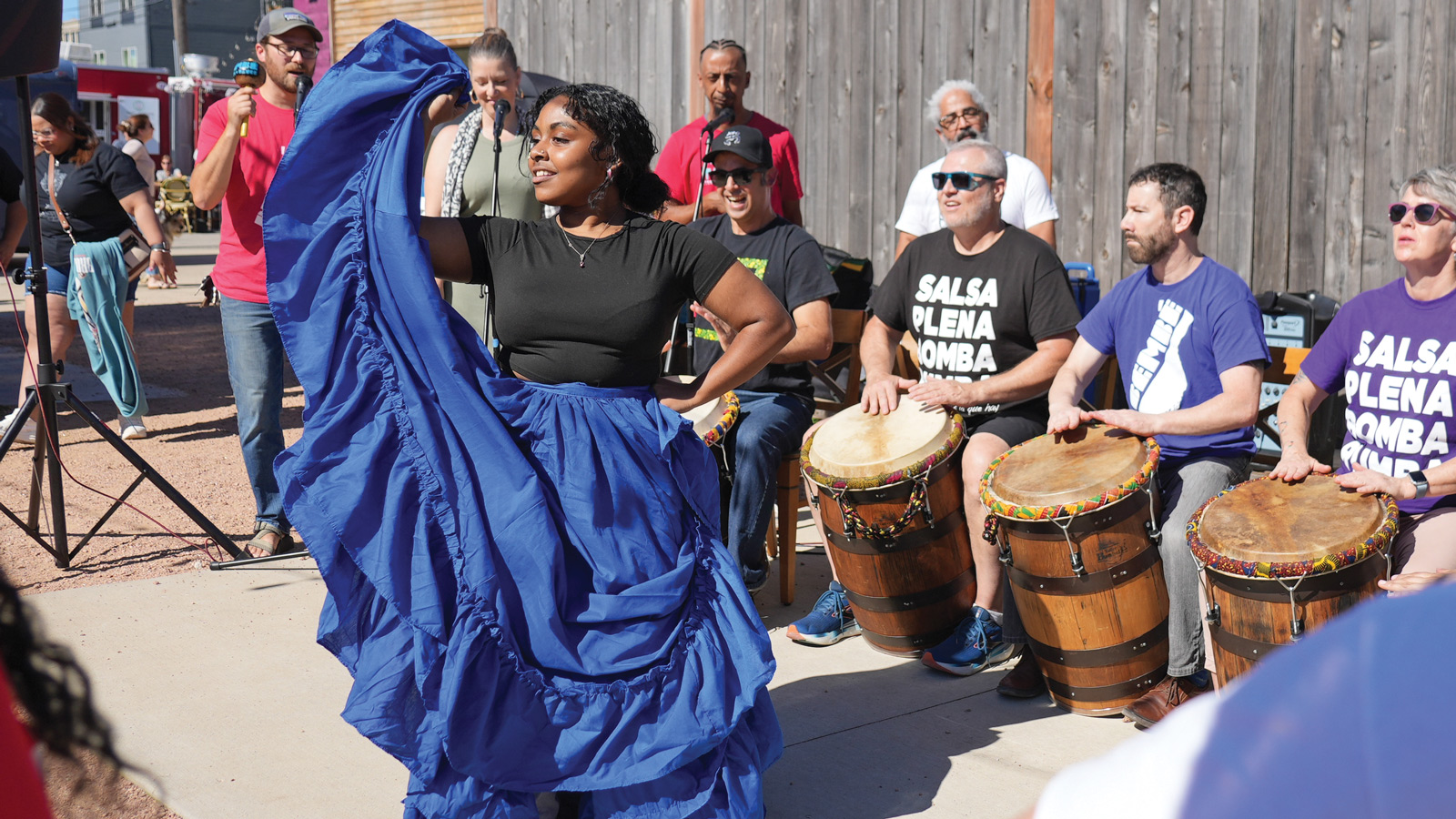
Milwaukee’s south side is a vibrant, dynamic tapestry of cultures, businesses and communities that reflect the heart and character of the city, as well as its challenges and opportunities.
The Greater Milwaukee Foundation has strategically invested in this part of the city, channeling resources into key areas that shape the well-being of its diverse population. From improving access to education and health care to supporting local businesses, entrepreneurs, arts and culture and housing initiatives, the Foundation’s shared community vision of a Milwaukee for all is weaving together investments and relationships that enhance the building blocks of a high quality of life.
Through partnerships with nonprofits and the community as well as sustained investments through the generosity of donors, the Foundation has worked to empower residents, preserve cultural heritage and create opportunities for growth, helping this community flourish. These initiatives have reinforced the south side as a vital part of Milwaukee’s identity, bridging gaps and fostering a thriving, inclusive ecosystem that benefits all.
Little learners, big opportunities
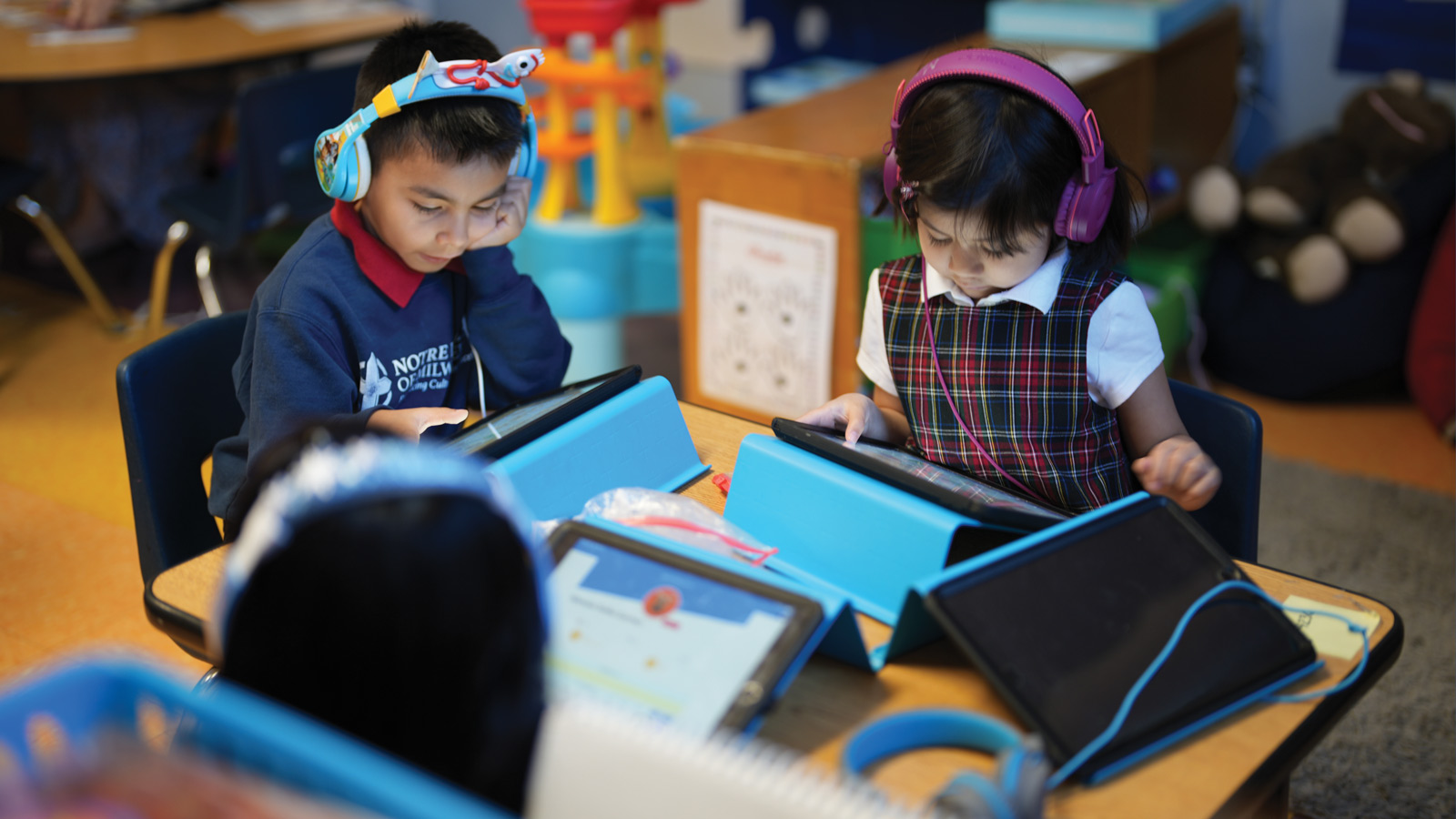
When St. Joseph Academy’s littlest learners enter through its doors, they’re greeted by the sight of a brand-new indoor play space. Complete with a sandbox, playground, kitchen and more, the space allows for children to play, explore and learn beyond the classroom.
In 2023, St. Joseph’s received a $49,300 Foundation grant to support this project.
“Children learn best through play and interaction and engagements, so having the ability to offer a safe environment of learning, free of hazards and bursting with sense-stimulating opportunities, supports development and learning in an enjoyable and healthy way,” said Diana Acevedo Rios, St. Joseph Academy Early Childhood Education Center’s associate director.
Director Karrie Krueger said the space showcases the quality programming St. Joseph’s offers to families while playing a crucial role in the curriculum that is designed for children to be lifelong learners.
“Kids at this age learn through play, but we develop that play into opportunities where kiddos are learning important skills to promote vocabulary, math, literacy and all those kinds of skills,” Krueger said.
Notre Dame School of Milwaukee received $140,000 in support from the Foundation for its early childhood education facilities to add two new classrooms and install air conditioning units. Additional donor support led to a new gym, library, outdoor space, safety equipment and more. “It’s a real honor and privilege for everybody at the school to know that there are people out there who invest in what we’re trying to do,” said Patrick Landry, Notre Dame’s president.
Notre Dame’s approach encourages recurring volunteers such as Judy Keyes, a Foundation donor,who has volunteered as a math tutor and previously served on its board.
“When you walk through the building, you get the feeling that something’s going on here and it’s pretty good,” Keyes said. “A good student there is admired, and people know that to do well eventually, they have to do well in school. The motivation comes from the other students and from the community. It’s easy to work in an environment like that.”
In addition to giving directly, donors have supported many of the Foundation’s strategic investments in the sector by contributing to the Early Childhood Education Fund. The Foundation’s support also includes research. In 2020, the study “A Seat at the Table,” commissioned by the Foundation, reported on the need for more quality seats in early childhood education for children on the south side.
The United Community Center responded to this need with the Ricardo Diaz Early Learning Academy, which has benefited from much Foundation and donor support.
“The data that the Foundation provided the community is a game changer,” said Laura Gutiérrez, UCC’s CEO. “It helped us leverage millions of dollars from other foundations. Due to the data, we were able to tell
our story.”
Today, the Ricardo Diaz Early Learning Academy serves more than 300 students.
“We believe education is the best inheritance you can leave your children,” Guiterrez said. “We saw this as an opportunity that could help not only our families but the entire community from an educational perspective.”
Making housing more affordable for our community’s caregivers
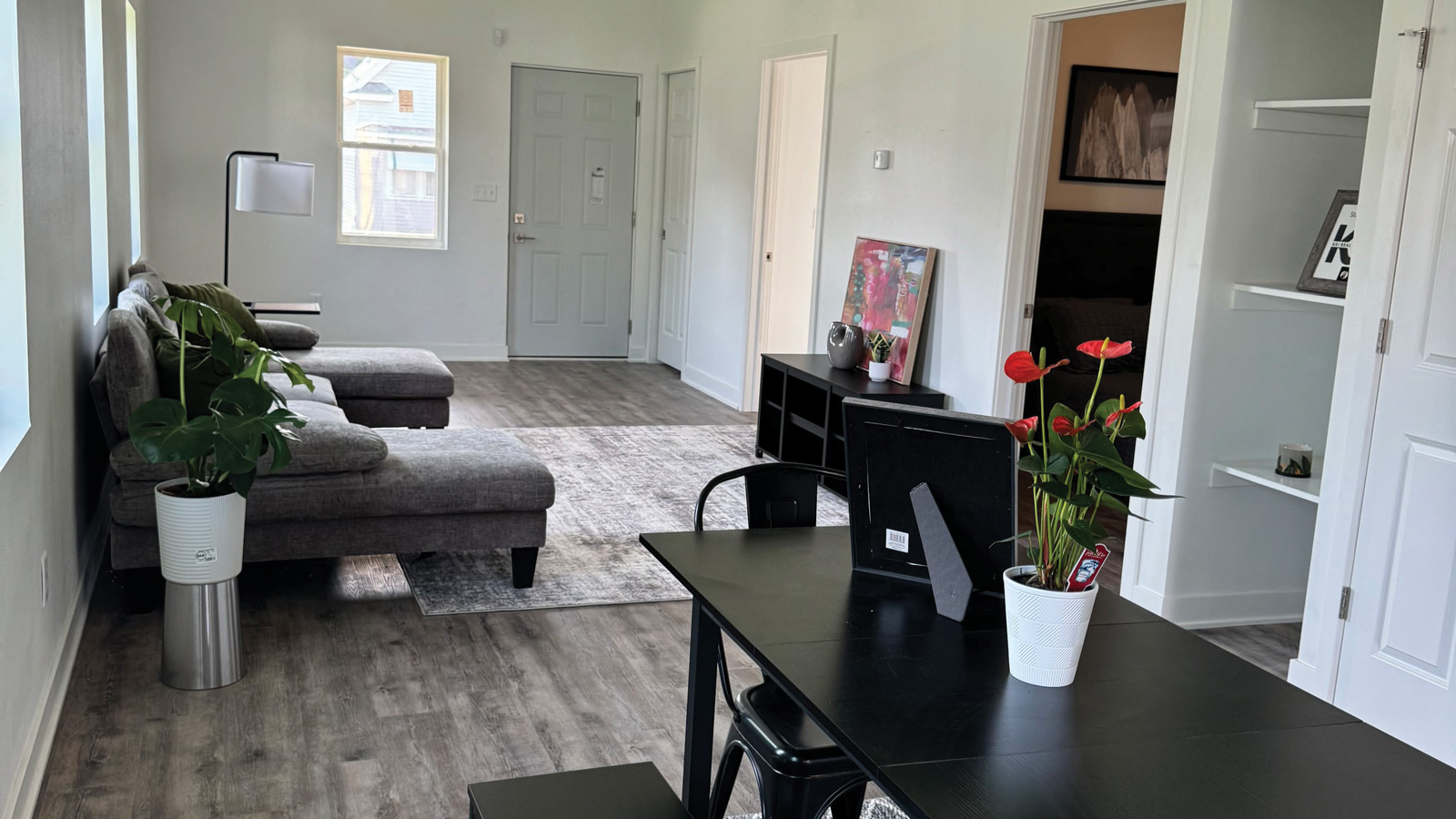
Bridging the Foundation’s deep investments in early childhood education and affordable housing, a new project is providing an innovative solution to the economic challenges faced by those teaching and caring for our community’s youngest learners. The Early Childhood Educator Home Initiative is another way the Foundation is working differently with partners on connected strategies that address the needs of the whole person.
“It’s no secret that early childhood educators do some of the most important work in our city,” said JoAnna Bautch, executive director of VIA Community Development Corporation, one of the four local developers chosen for the project. The Foundation has supported VIA in a variety of ways since 2002, for a total of nearly $900,000. The organization also recently became an agency endowment partner, investing with the Foundation for its sustained future.
“Yet sadly, those educators aren’t being paid good wages, and many are looking for better opportunities to support themselves and their families. This initiative will encourage them to stay in this critical workforce area.”
The initiative — managed and funded by the Community Development Alliance and LISC Milwaukee — is subsidizing construction of 46 entry-level homes across Milwaukee. The homes will be reserved for purchase by early childhood educators who are income-qualified and first-time homebuyers.
VIA is developing 14 houses — nine are on the near south side and five in the Washington Park neighborhood. The 1,100-square-foot, three-bedroom, one-bath homes will be built on city-owned vacant lots (purchased for $1) for a subsidized price of $100,000. The homes will have basements with egress windows and rough-in plumbing to allow families to grow in them.
“For some families, these will be starter homes. For others, forever homes,” Bautch said.
VIA is partnering with two early childhood education providers, United Community Center on the south side and Rooted and Rising in Washington Park, to recruit homebuyers and prepare them for homeownership through HUD-approved first-time homeownership courses.
VIA recently sold its first new construction home on the south side on Oct. 31 to an early childhood educator who works at the UCC. It broke ground for five additional south side houses in June 2024 and five houses in Washington Park neighborhood in September. VIA will start work on the final three south side houses as part of the initiative in April 2025.
“This is a really great opportunity not only to support early childhood educators but to tackle the problem of vacant lots, which are eyesores and lead to illegal dumping and other problems,” she said.
This is the first new construction venture for VIA, which has been rehabbing homes since 2008 through the Turnkey Program, which transforms vacant bank- and city-owned properties into fully renovated, move-in-ready homes for income-qualified households. The south side-based organization serves the neighborhoods of Silver City, Burnham Park and Layton Park.
That program achieved multiple goals, including addressing foreclosures, increasing affordable homeownership opportunities, reducing crime, increasing neighborhood home values near each home renovation, combating housing displacement, and employing minority-owned contractors. Over the past 15 years, VIA fully rehabbed and sold 33 homes, leveraging $5 million in investments.
One south side family, Jacobo and Cely Ramirez and their young son, are delighted with their turnkey home on South 25th Street, which they purchased in 2023. VIA provided valuable guidance throughout the process, helping them understand each step clearly.
“It’s the perfect sized home for our family,” Cely said. “I love the beautiful kitchen and the vibrant colors throughout the house.”
Added Jacobo, “We feel incredibly blessed to finally be homeowners. Don’t give up! There are numerous resources available to help you achieve your dream.”
Healthy mind, healthy bodies, healthy community
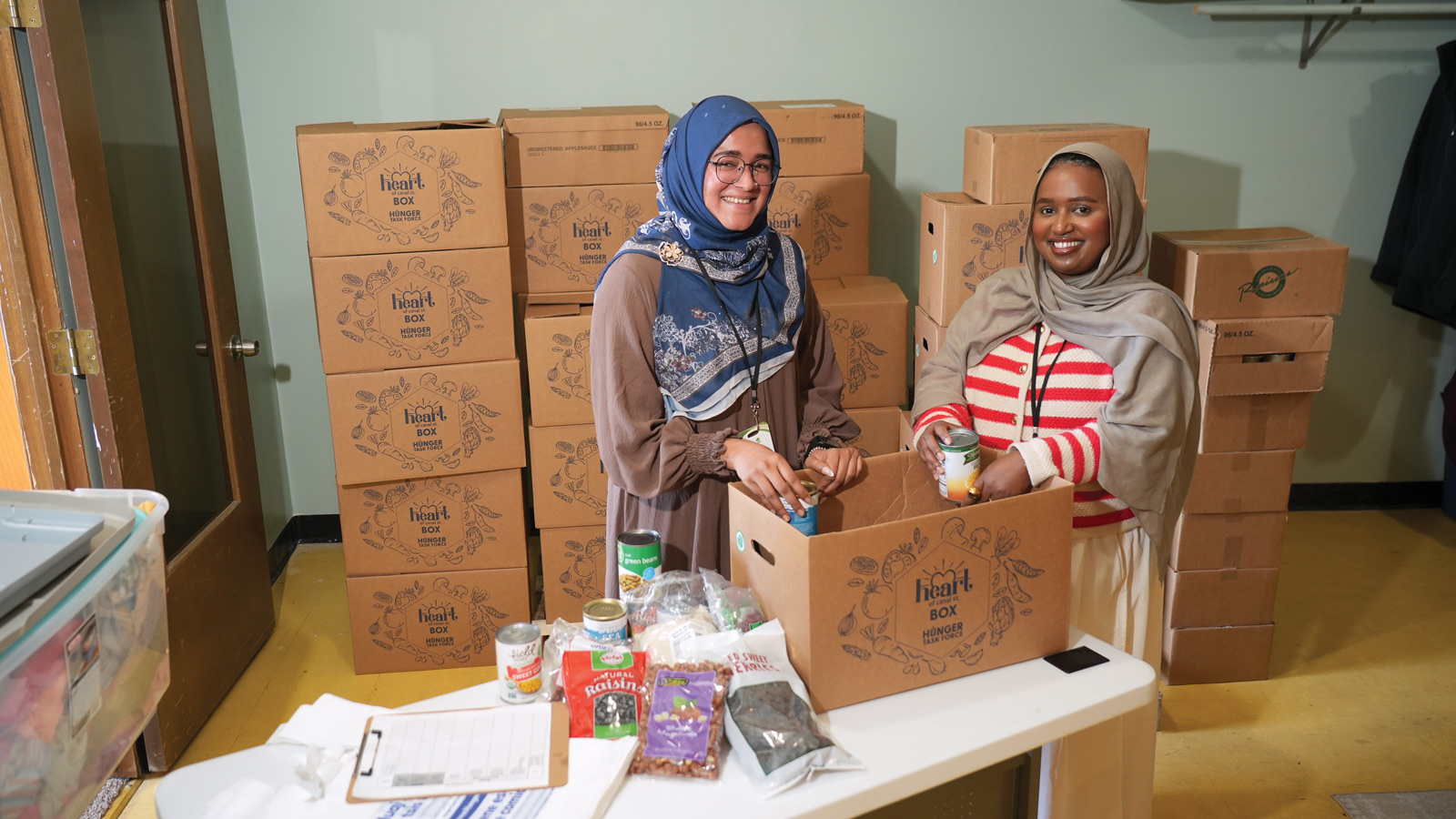
When accounting for community well-being, food plays a significant role in one’s mental, physical and emotional health. Hanan Refugees Relief Group and the Gerald L. Ignace Indian Health Center see the connection every day.
Hanan, which means “compassionate” in Arabic, is a refugee resettlement agency that works with more than 800 refugees a year. Its services include a halal food
pantry and cultural food advocacy program, which helps refugees navigate the food environment in Milwaukee, from finding affordable supermarkets or ethnic stores to using FoodShare to acquire certain spices or foods. It’s located on Howell Avenue, just north of Mitchell International Airport.
“A lot of refugees come in with PTSD, and they already have mental health issues and then to add on a new environment and a new culture ... we want to make it easier for them,” said Sheila Badwan, Hanan’s executive director.
The Foundation provided $125,000 in grants over the past two years to support Hanan’s food pantry and essential family support for refugees navigating the challenges associated with transitioning from their home country.
Children may struggle to adjust, and some stop eating if they don’t have their customary foods, but a welcome basket of culturally appropriate foods makes it easier, Badwan explained.
The Gerald Ignace Indian Health Center provides culturally appropriate food during community gatherings and peer support groups. As an indigenous health center, it provides resources and care for Native Americans based in Milwaukee, throughout Wisconsin and across the nation.
In 2023, a $30,000 Foundation grant funded culturally specific and trauma-responsive mental health services for Native American youth. The grant supported the purchase of materials such as food and supplies for activities designed to build self-esteem, resilience and confidence.
“We’re always trying to provide a space that’s mutually welcoming and accepting but also provide those traditions and safe spaces and ceremonial ties of healing,” said Stacey Hollister, deputy director of behavioral health, grants management and community programming.
Hollister continued, “Especially in the suicide prevention realm, we talk about protective factors … social connection is one of those really big protective factors. Social connection is something that we’re growing here in all of our community programming, gatherings, groups, classes, things like that that are happening, and it’s fostering that peer-to-peer connection.”
At the center, 930 W. Historic Mitchell St., clinicians integrate culturally based mindful practices such as smudging and beadwork as well as affirmational phrases in Potawatomi, Ojibwe, Ojibwemowin and Ukehuwenéha.
“The antidote to historical trauma is culture,” said Alaina Hanks, clinical director of child and family therapy. “We’ve learned over the years through people who’ve done this work to identify what is going to help with these massive disparities, and the answer always comes back to culturally specific integrations.”
Beautifying Milwaukee, expanding worlds
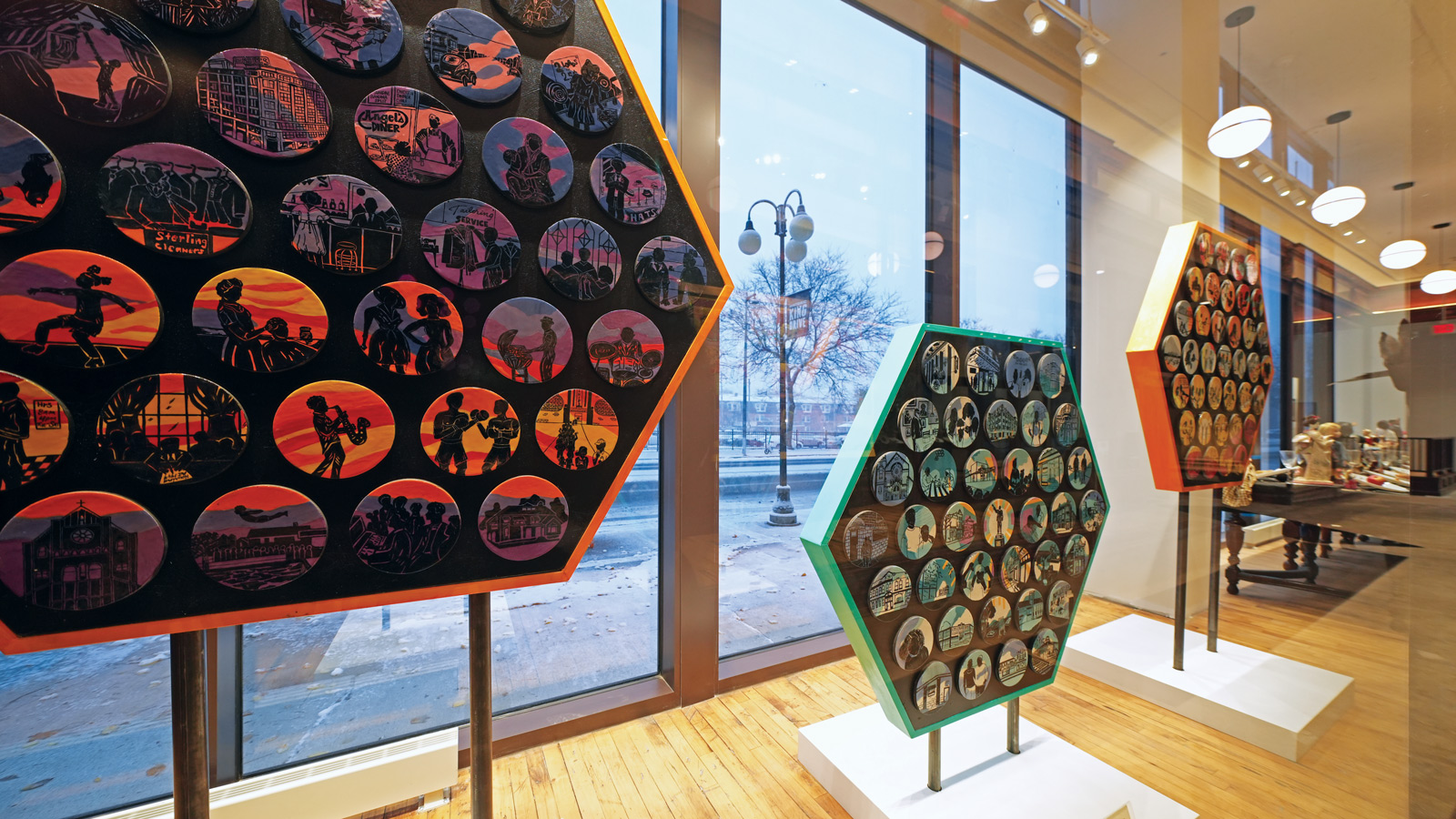 For La Familia de Arte, a grassroots organization that creates community-based artwork with multicultural and intergenerational artists, art is the tool of choice to beautify, educate, inform and foster community. The organization’s basic mission is to use art to help the community express itself through storytelling.
For La Familia de Arte, a grassroots organization that creates community-based artwork with multicultural and intergenerational artists, art is the tool of choice to beautify, educate, inform and foster community. The organization’s basic mission is to use art to help the community express itself through storytelling.
Since 2021, La Familia has received $134,000 in support from the Foundation and its donors. This funding supported La Familia’s pandemic memorial along Cesar Chavez Drive to honor essential workers and those who lost their lives.
“We didn’t have a lot of history back then, but the Greater Milwaukee Foundation could see something in us and encouraged and supported us,” said Lori Gramling, La Familia’s executive director.
All of the work La Familia produces encourages the community members to embrace their cultural identity. The Prince of Peace mural, for example, celebrates the parish’s diversity with depictions of Native American dancers, Hmong refugees and South American immigrants.
“Reaching out to neighbors is one intention we always keep in mind,” Jacky Gutierrez, associate director of La Familia, said.
She often tells the group’s young artists, “This is more than something that’s going to be meaningful to you; it’s meaningful to everyone.”
At Latino Arts, art and cultural education intersect to create spaces of learning through its galleries, programs and classes. The Foundation and donors have supported Latino Arts since its beginning in 1986.
“We are so grateful for the support that the Foundation has given us through the years,” said Jacobo Lovo, its managing artistic director. “It has allowed us to bridge the gap between what kind of art our students or young people in a community are exposed to and create accessibility. Not only that, but we are able to plan for the future because we have that support.”
One of Latino Arts’ anchor programs is the Latino Arts Strings Program, which offers classical training to pre-college students ages five through 18. The program receives support from the String Academy of Wisconsin, an advised fund at the Foundation that supports string programs throughout Milwaukee.
“String programs are vital to the community and to students and families and their schools,” said Darcy Drexler, one of the academy’s fund advisers. “Learning an instrument, you develop focus, you develop discipline, you learn how to fail, you develop empathy and creativity. With a program like Latino Arts, these kids get together, they work hard, but they have fun.”
For Lovo, the string program is only one example of the influence that Latino Arts has on the south side.
“We are here for the community, ultimately, is what we want them to know,” Lovo said.
“This is a safe space for them to come explore art. It is a place where you can bring your children, and, whether you’re from the community or from outside, you can have an authentic experience.”
A game changer and guiding light for small businesses
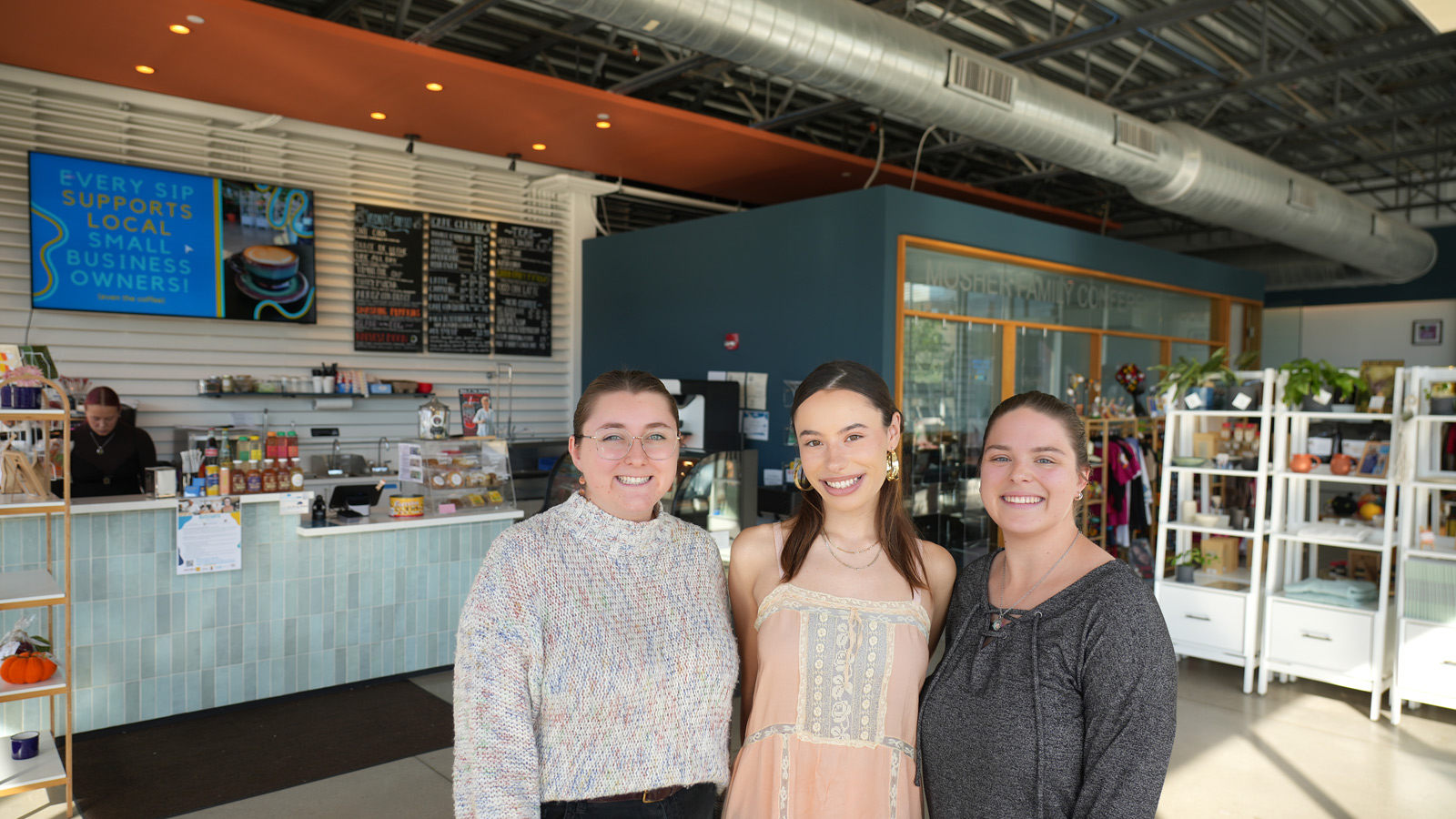
The Foundation is having a huge impact on the whole south side ecosystem, and nowhere is this more apparent than through its support of small businesses.
In addition to providing financial capital through its impact investing program, the Foundation has long supported BizStarts Milwaukee. This decade-old organization has helped hundreds of grassroot entrepreneurs — from small stores to scalable start-ups — with the knowledge they need to get a business running.
BizStarts’ resources are provided by business leaders, seasoned academics, subject matter experts and successful entrepreneurs, many of whom are Black or Brown. Options include one-on-one coaching, workshops, peer learning, access to partner resources, personalized mentoring, business plans and periodic reviews of a business’ operations and processes.
For most BizStarts entrepreneurs, the first step in the journey is the BizStarts Institute, a six-week “boot camp” with 25 students per cohort. The institute meets on six consecutive Saturday mornings. Classes are offered in English, Spanish and American Sign Language. Most of the potential entrepreneurs come from low-to-moderate-income neighborhoods and communities of color.
“What is unique about our program is that it’s not the traditional entrepreneurship taught in college,” said Patrick Snyder, BizStarts president. “It’s not about a seed round or the weighted average cost of capital. It’s much more practical: how to market if you don’t have any money, how to get people to work for you if you can’t pay them, how to get your numbers in QuickBooks if you’re not good at math.”
In 2023, BizStarts served 521 entrepreneurs, 47 percent of whom were able to hire staff, creating 137 jobs. Ninety-five percent of the entrepreneurs were Black or Latino.
Knowledgeable community volunteers provide free ongoing assistance. Some IT student consultants, for example, help set up websites for budding entrepreneurs. Others show them how to build social media pages and provide sample posts. Volunteers at the Marquette Volunteer Legal Clinics set up LLCs.
All this support was invaluable to Ruben Gaona, executive director of My Way Out, which has been assisting justice-involved individuals with reentry into the community and workforce since 2020. After serving eight years of a 10-year federal sentence, Gaona was released in 2017. At his federal halfway house, he was told that because of his criminal conviction, the best he could hope for was a minimum-wage job — even though before being incarcerated he had served in the U.S. Navy and was a U.S. Department of Defense employee.
“I strongly believe that mistakes do not define who you are,” Gaona said. “It’s what you do afterward.”
Gaona’s “afterward” was to get a job as an employment training specialist in a reentry program with the Wisconsin Department of Workforce Development. But his dream was to run his own program as well as to be a motivational speaker and consultant — a dream BizStarts helped him achieve. Mentors strengthened his computer skills, but what helped Gaona most was coaching in public speaking to overcome his natural introversion. Today, he speaks at numerous events representing My Way Out. Recently he spoke to classes at the University of Notre Dame.
“Imagine a guy coming out of prison speaking at Notre Dame!” he exclaimed.
Foundation support has been critical for BizStarts. Since 2011, the organization has received $351,000 in Foundation grants, including one to help establish the Community Market, a retail learning lab on South First Street in Walker’s Point featuring products and services from BizStarts entrepreneurs.
“Milwaukee wouldn’t be the city it is without the Greater Milwaukee Foundation,” Snyder said. “It has been a bellringer, a guiding light leading Milwaukee in the right direction.”